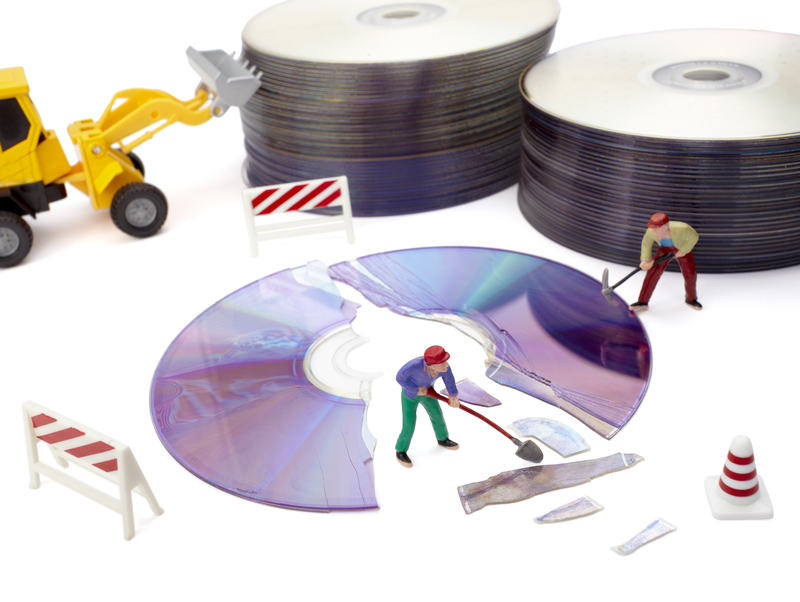Green Waste Handling Practices
Posted on 14/04/2025
Introduction to Green Waste Handling Practices
Sustainable waste management is becoming increasingly important as we continue to witness the adverse effects of improper waste disposal on our environment. One significant category of waste that requires special attention is green waste. By implementing effective green waste handling practices, we can significantly reduce our environmental footprint and contribute to a healthier planet.

Understanding Green Waste
Green waste, also known as organic waste, includes biodegradable materials like grass clippings, leaves, branches, food scraps, and other plant-based materials. These waste materials originate from residential gardens, parks, and commercial landscaping. Unlike other types of waste, green waste can be decomposed naturally, making it an excellent candidate for recycling and composting.
Importance of Proper Green Waste Management
Managing green waste effectively has numerous benefits, including reducing landfill usage, minimizing greenhouse gas emissions, conserving natural resources, and enriching soil quality. Proper green waste handling practices ensure that organic waste is diverted away from landfills, where it would otherwise decompose anaerobically and produce harmful methane gas.
Best Practices for Green Waste Handling
Composting
Composting is the most popular method of green waste management. It involves the natural decomposition of organic materials to create nutrient-rich compost, which can be used to improve soil health. To start composting, you can use compost bins, piles, or tumblers. Remember to mix green waste (nitrogen-rich materials) with brown waste (carbon-rich materials) at a ratio of around 1:3 and maintain adequate moisture and aeration for optimal decomposition.
Mulching
Mulching involves placing a layer of organic material, such as leaves or grass clippings, onto the soil surface. This helps retain soil moisture, regulate temperature, reduce weed growth, and prevent soil erosion. Additionally, as the mulch decomposes, it adds essential nutrients back into the soil, promoting healthy plant growth.
Vermicomposting
Vermicomposting utilizes worms, typically red wigglers, to break down organic waste materials. Worms consume the waste and produce nutrient-dense castings, which can be used to enrich the soil. Vermicomposting is an excellent option for those with limited space, as it can be done in containers both indoors and outdoors.
Curbside Green Waste Collection
Many municipalities offer curbside green waste collection services. Residents can place their green waste in designated bins, which are then collected and transported to composting or mulching facilities. It is essential to follow local guidelines to ensure that the collected green waste is appropriately processed and utilized.
Tips for Effective Green Waste Management
1. **Know What Can Be Composted**: Not all green waste can be composted. Avoid including items such as meat, dairy products, and diseased plants in your compost pile.
2. **Chop and Shred Materials**: Cutting green waste into smaller pieces accelerates the decomposition process.
3. **Use Compost Activators**: Compost activators, such as manure or commercial compost starters, can speed up the breakdown of organic materials.
4. **Maintain Proper Balance**: Ensure a proper balance of green and brown materials in your compost pile for efficient decomposition.
5. **Turn Your Compost Regularly**: Aerating your compost by turning it regularly helps to maintain the right oxygen levels and speeds up the decomposition process.
Pros and Cons of Green Waste Handling Practices
Pros
- **Environmental Benefits**: Reduces landfill usage and greenhouse gas emissions, and conserves natural resources.
- **Soil Enrichment**: Compost and mulch enhance soil fertility and structure, promoting healthy plant growth.
- **Waste Reduction**: Diverts a significant portion of organic waste away from landfills.
- **Cost Savings**: Home composting and mulching can reduce the need for chemical fertilizers and soil conditioners.
Cons
- **Initial Setup Costs**: Setting up compost bins, tumblers, or vermicomposting systems can require initial investments.
- **Space Requirements**: Composting and mulching can require significant space, which may not be available to all homeowners.
- **Time and Effort**: Proper green waste management practices require time and regular maintenance.
- **Odor Issues**: Incorrect composting techniques can lead to unpleasant odors.

Takeaways
- Green waste is biodegradable and can be effectively managed through composting, mulching, and vermicomposting.
- Proper green waste management reduces environmental impact, enriches soil, and promotes sustainable living.
- Understanding what can and cannot be composted, maintaining the right balance of materials, and regular maintenance are essential for effective green waste handling.
Conclusion
Adopting effective green waste handling practices is critical for ensuring environmental sustainability. By composting, mulching, and utilizing vermicomposting methods, we can transform organic waste into valuable resources that enhance soil health and contribute to a greener planet. While there are some challenges associated with green waste management, the benefits far outweigh the drawbacks. With the right knowledge and practices, we can all play a part in reducing our environmental footprint and promoting a sustainable future.
